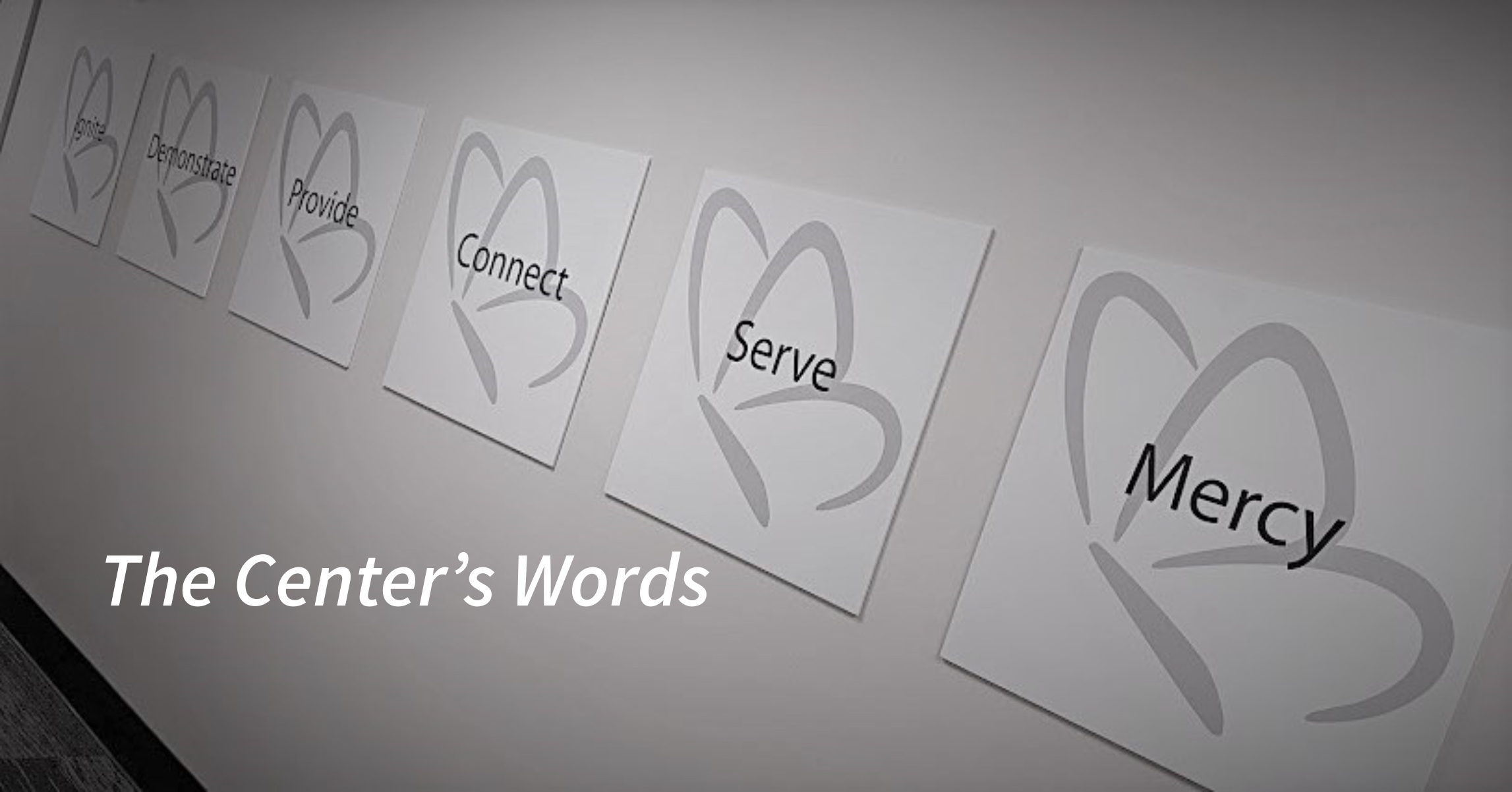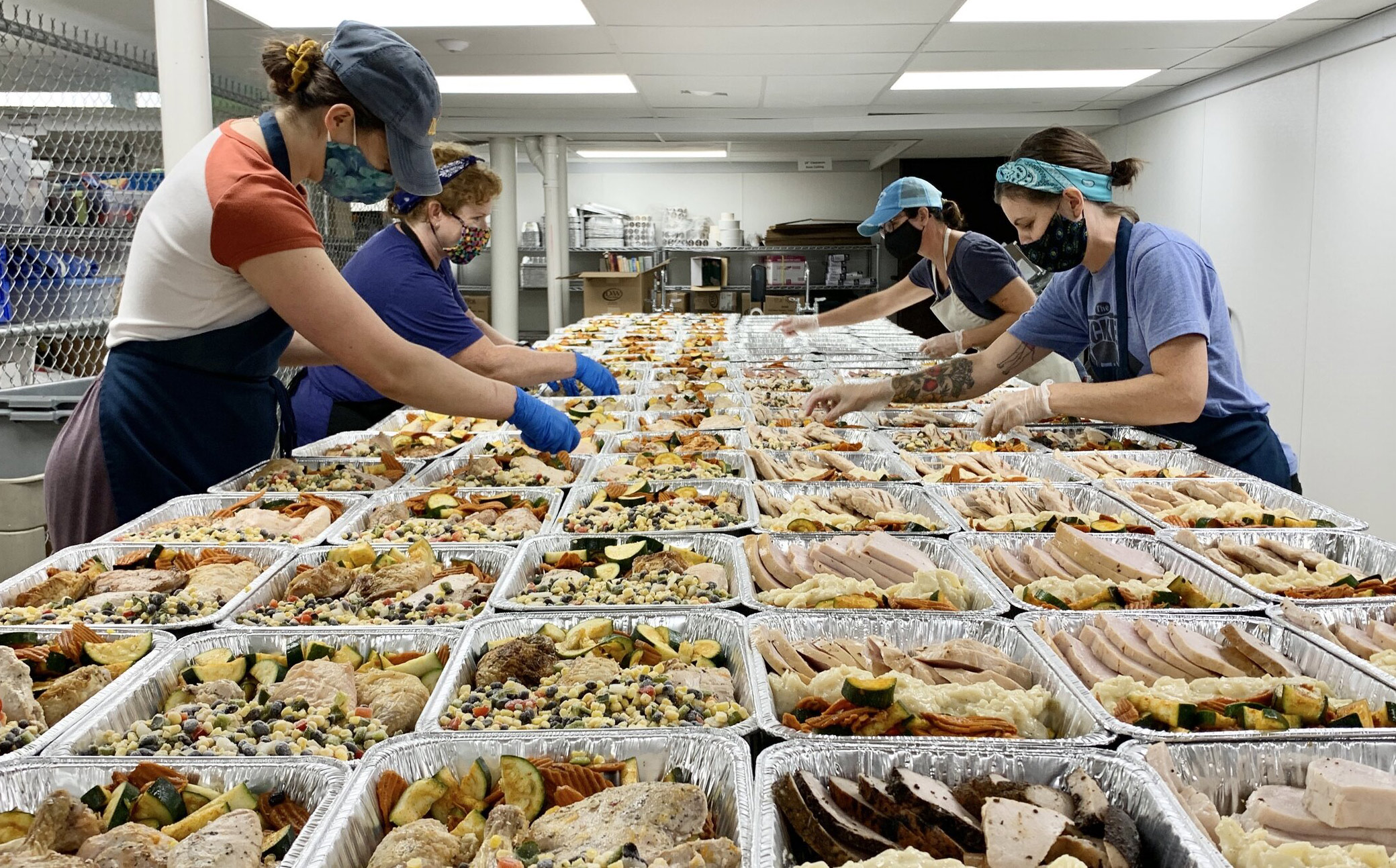
La Soupe; Feeding Bodies and Souls

DeYoung’s vision came naturally; after a full life involving food. She viscerally understood that food waste is a fundamental problem and knew that there had to be a way to deploy healthy food to families, communities, and to places that have been called food deserts.
During her years as a restaurateur and caterer, Suzy began to feel the need to change the trajectory of her clientele. And so, she gained a new sense of purpose by redistributing catering food overages to those in need. Then in 2014, she made a huge leap of faith when she sold her ownership (in Petite Pierre Restaurant) to her sister and officially launched La Soupe.
“I used the money and knowledge that I had gathered as a 30-year veteran of cooking, catering, and restaurants. At LaSoupe we tried to match up with the growing population of people experiencing food scarcity.”
For most of that first year, La Soupe was a small soup shack cooking for a few people in need and rescuing 100 pounds of produce a week. Then, one morning, Suzy was scrolling through Facebook and came across a post from a teacher at Oyler School in Lower Price Hill:
Oyler School is out of food to send home in weekend power packs for the children. That means many of our kids do not eat from the time they are released from school on Friday, until they return to school on Monday.
Suzy went into action and loaded all the food from La Soupe and headed to Oyler.
Cincinnati is ranked 5th among US cities with the highest rate of childhood poverty. At the same time, 40% of all food produced worldwide is either lost or wasted each year. With this statistical information, Suzy began to bridge the gap between food waste and hunger in the greater Cincinnati area. She developed a plan that would rescue otherwise wasted produce to create delicious and highly nutritious meals for customers, nonprofits, and food-insecure families.
DeYoung created a relationship with Kroger.
“I gave it a shot — so that’s how it really was — just one Kroger –which was the Madeira Kroger and then quickly we needed more food and then it was the Mariemont Kroger and it just kind of kept growing from that. People started showing up.”
Enter 2022 and LaSoupe feeds thousands of people, is high tech (through their app), and has been able to iron out logistics – how to get excess food to the people and places that need it most.
“The app that we use — it’s scheduled basically to run from where we pick up (food) to where we deliver. We were trying to figure out the distribution. This was always the key because you can make and provide food but if people can’t get to the pantry – it is a problem. We started to look at different alternatives like the schools, the rec centers, and the libraries. We decided to move (to a new location.) The decision was to move to a city food desert — which was Walnut Hills where the need is right there — and we would have a bigger impact by being right in the location.”
LaSoupe has 140 share partners which can be rec centers, schools, and the pantries themselves.
“We try to provide ready to eat meals but also hand-selected products — more of a quick list. Which solves part of the problem — instead of just picking (food) up and bringing it places.”
LaSoupe has been recognized across the nation – recently by The Food Network. When asked about how she feels about LaSoupe being named a Transformation Award honoree – she quietly chuckles and explains her fondness for the Center.
“The Center for Respite Care is important to me on a personal level — one of the finest people I’ve had the opportunity to get to know is somebody from the Center who now works for us — his name is Joe Harmon and he lived at the Center. He couldn’t be where he is today without it (the Center) — it’s really impactful. He’s been a great friend and a great employee.”
To DeYoung it is more than about the food itself. It is about health, nutrition, and well-being.
“ Food is the medicine. We believe in nourishing the whole person. It’s very holistic to how we feed people. This is real chicken broth — homemade 90% of the time from organic chicken.”

